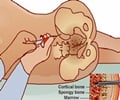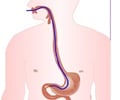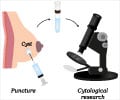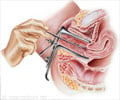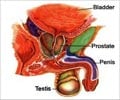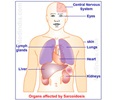Glossary
Pathologist: A physician who practices, evaluates, or supervises diagnostic tests, using materials removed from biopsy specimens.Formalin: A 37% aqueous (water) solution of formaldehyde, a pungent gas, used as an antiseptic, disinfectant, and used as a fixative for histology (the study of tissues under the microscope).
Tumor/Neoplasm: An abnormal tissue that grows uncontrolled by cellular proliferation more rapidly than normal cell.
Lymph node: Lymph nodes are numerous round, oval, or bean-shaped bodies located along the lymphatic vessels, on one side through which blood vessels enter and efferent lymphatic vessels emerge.
Sarcoma: A connective tissue neoplasm, usually highly malignant, formed by proliferation of mesodermal cells.
Microscope: An instrument that gives an enlarged image of an object or substance that is minute or not visible with the naked eye; usually the term denotes a compound microscope; for low magnifications, the term simple microscope, or magnifying glass, is used.
Radiologist: A physician specialized in radiology, the branch of medicine that uses ionizing and non-ionizing radiation for the diagnosis and treatment of disease.


